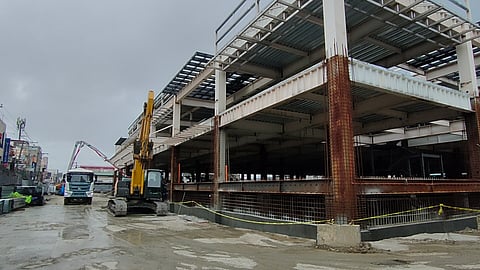
- NEWS
- the EDIT
- COMMENTARY
- BUSINESS
- LIFE
- SHOW
- ACTION
- GLOBAL GOALS
- SNAPS
- DYARYO TIRADA
- MORE

CABANATUAN CITY, Nueva Ecija — Cabanatuan City is grappling with a debt of P3.2 billion, largely accrued from incomplete infrastructure projects.
The debt is divided among three ordinances.
The largest chunk of this debt, amounting to P2.6 billion, was allocated under Ordinance No. 072-2021 for barangay projects, including the construction of two new public markets.
However, this ordinance faced scrutiny and was recently invalidated by the provincial board of Nueva Ecija due to controversial payment terms for market stalls.
Stakeholders raised concerns over a requirement of a hefty 50 percent down payment for stall reservations, coupled with an additional 50 percent for occupancy fees, the specifics of which remained undisclosed.
In a bid to realign unused funds from 2018, Ordinance No. 018-2022 redirected P270 million toward vital infrastructure projects, namely the Emilio Vergara-Nueva Ecija-Aurora Flyover and the Emilio Vergara Highway-Lakewood Flyover.
This ordinance gained provincial board approval in October 2022, marking a pivotal step amid mounting financial pressure.
Meanwhile, Ordinance No. 016-2022 is currently pending provincial board approval, seeking authorization for an additional P273,643,872.72 in debt to further bolster ongoing flyover constructions.
The city’s approval hinges upon the submission of a NET (Net Enrolment Ratio) debt service clearance, a critical benchmark assessing Cabanatuan City’s capacity to manage and repay its burgeoning debts responsibly.
Underpinning these financial deliberations is Section 324b of The Local Government Code of the Philippines Book I, mandating that local borrowings do not exceed 20 percent of regular earnings. This safeguard aims to prevent potential debt crises and ensure sustainable fiscal practices.
Amid growing apprehension among residents, concerns abound regarding the city’s 50-year master development plan, now imperiled by delayed infrastructure initiatives and lingering construction setbacks.
Local sentiment underscores frustrations over incomplete road projects, which have detrimentally impacted daily commutes and commerce flows within the city.
